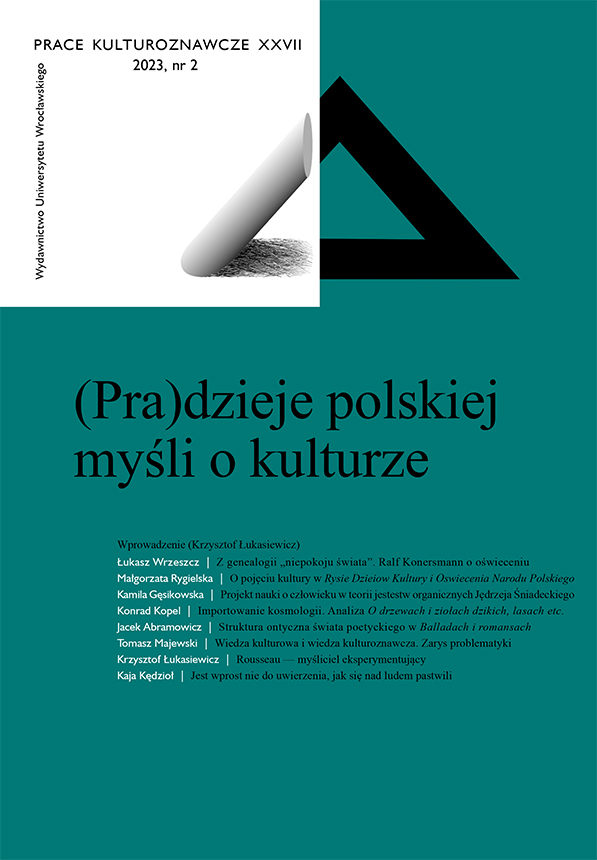

Articles

Ralf Konersmann (born in 1955) is now one of the most recognized philosophers of culture. The Polish reader was already introduced to his thought more than a decade ago with Filozofia kultury. Wprowadzenie (2009) and Krytyka kultury (2012) due to the efforts of Krystyna Krzemieniowa. However, it is Konersmann’s later works, Unruhe der Welt (2015) and Wörterbuch der Unruhe
(2017), that are of particular interest. In them the author diagnosed modernity as a state of permanent restlessnes (Unruhe), which was normalized throughout history. Using the geneaological method, Konnersman seeks the historical origins of this state of affairs and assigns a signifi cant to the Enlightenment. In this article, I reconstruct Konersmann’s genealogy of world restlessness based on
the overview of eighteenth-century philosophy presented in the Konersmann books, which I analyzed. I begin with a general outline of the idea of restlessness and then move to show the particular relation of restlessness to modern critique and mythical thought. Indeed, it can be inferred from Konersmann’s works that restlessness—not unlike culture—expresses itself through critique and
that Enlightenment reinterpretations of myth made it possible to “tame” it.